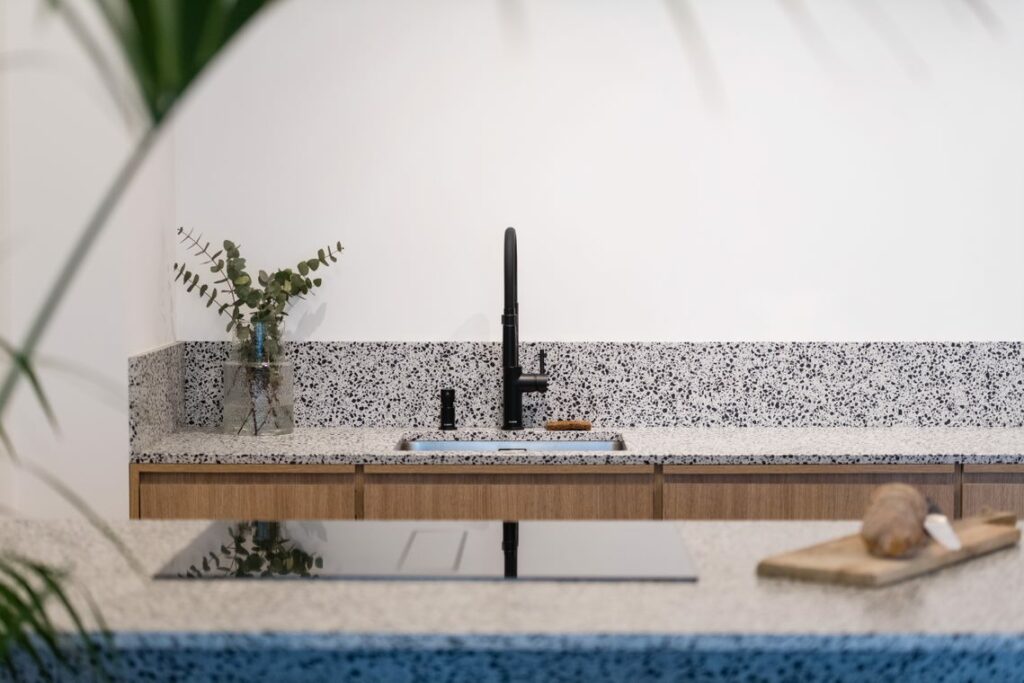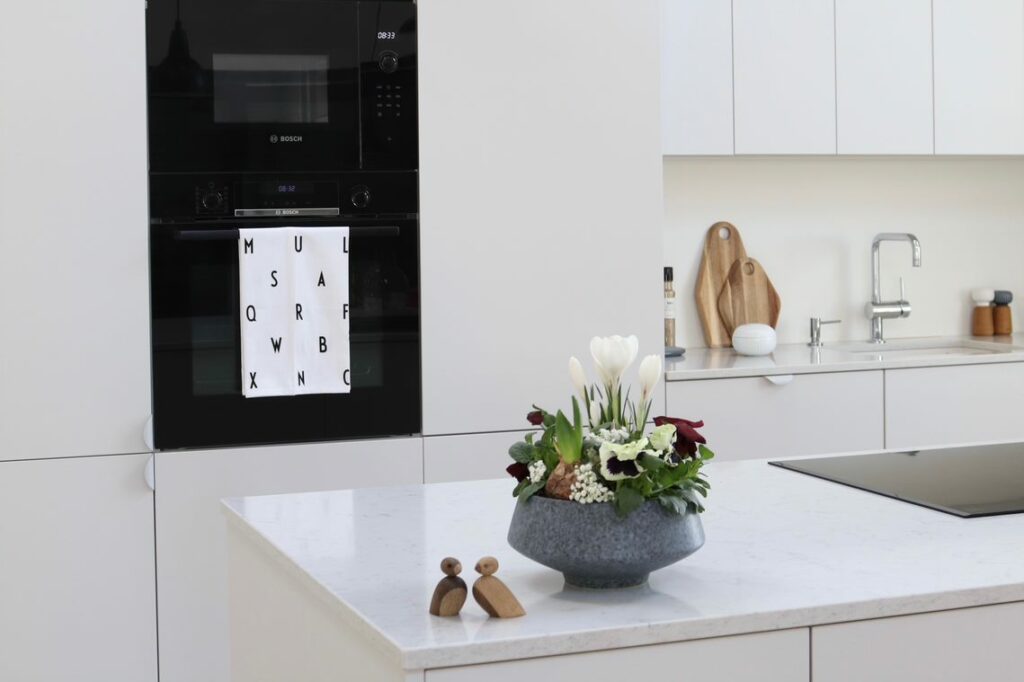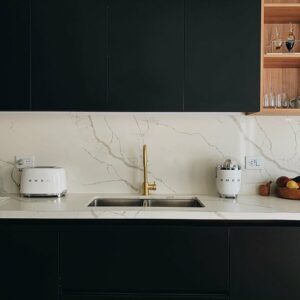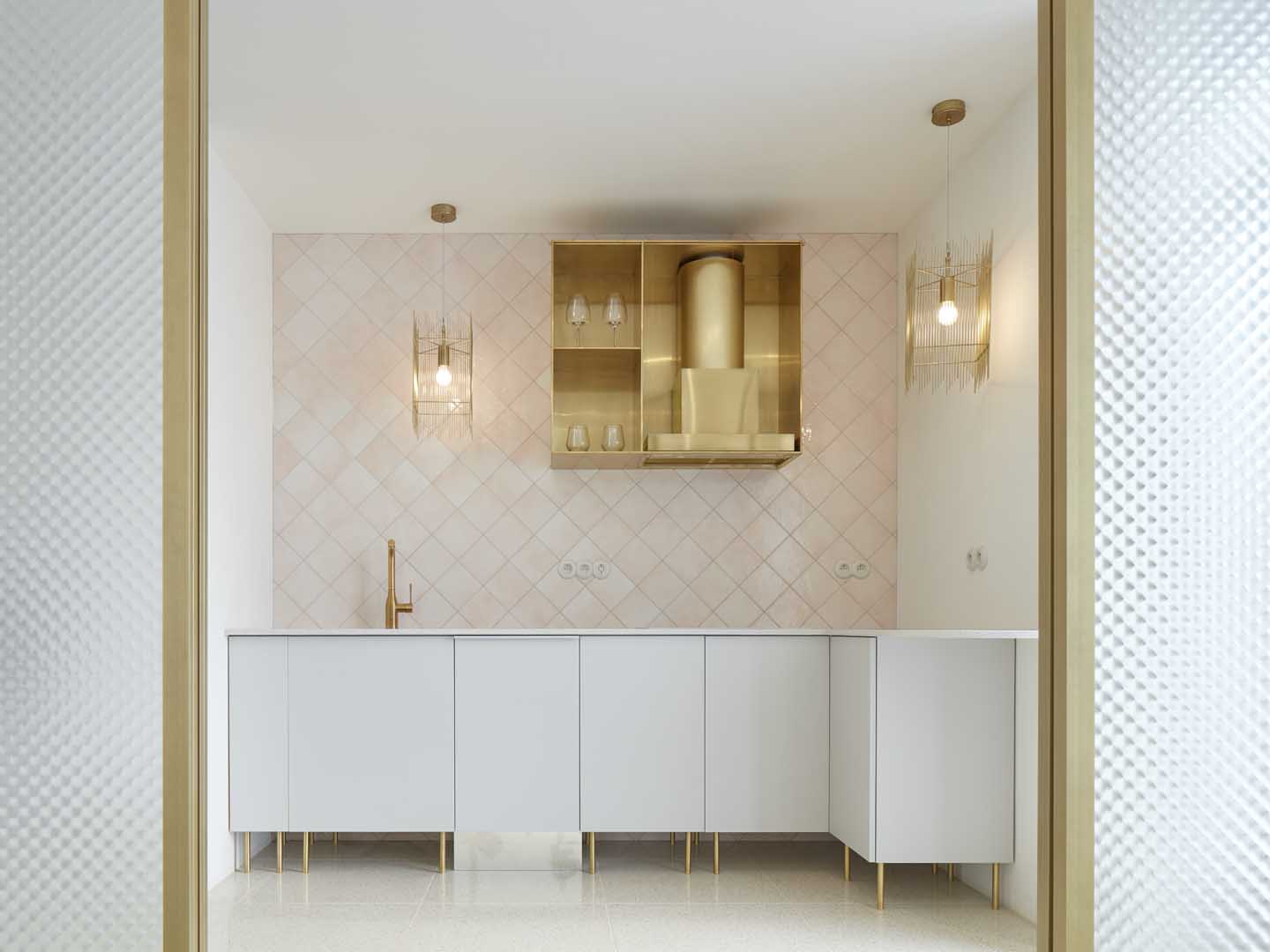
How to Properly Care for Engineered Stone and Prolong its Useful Life
When you include engineered stone in your interior, you are adding a luxurious and original element that requires minimal maintenance. However, to ensure you enjoy it for many years and that it stays as beautiful as the day you bought it, you do have to give it a bit of regular care. That way, you will avoid mechanical damage to the engineered stone surface.
Take Care of Your Engineered Stone Countertop and Keep It in Perfect Condition for Years
More and more consumers are choosing engineered stone because of its excellent performance. In order to preserve its unrivaled qualities, including its high resistance to scratching and its stable, uniform coloration, it should be cleaned with products specifically designed for use on engineered stone. Engineered stone is very resistant to natural juices and staining, but if a liquid is spilled on it, it is best to follow the advice below. These guidelines apply generally to all of the surfaces commonly found in your home and in particular will help you avoid damaging the structure of your engineered stone countertops. Read about the many advantages of engineered stone that are worth preserving for a longer period of time with proper care.
Working with Engineered Stone Before and During Its Installation in Your Interior
Before your engineered stone is installed, it’s important to store it properly. That way you will avoid warping the individual slabs and tiles so that their installation will go perfectly. Store slabs of engineered stone in a vertical position, preferably on a compact stand.

Kitchen countertop and backsplash in the Taurus Terazzo White design. Diana Perknovská, Architect, www.perknovska.com
Prevent Damage to Engineered Stone in the Course of Everyday Household Tasks
Every material has its limits, so it is wise to prevent damage to engineered stone during everyday activities in the home.
Engineered Stone in an Interior
Engineered stone from Technistone is designed for indoor use only. It is not suited for use on exteriors because it is vulnerable to the effects of direct sunlight. In full sun, engineered stone can change color and fade. If that happens, the uniform design that our customers love so much will become less visible.
Clean Engineered Stone with Suitable Products
Engineered stone should only be cleaned with products that are entirely non-abrasive. That means they do not contain abrasive particles that can wear away the material’s finish. In order to maintain its attractive appearance and texture, we recommend you do not use any strong cleaning agents (such as bleach, scouring powder, and the like) that are often used to clean wastebins, toilets, ovens, stainless steel or ceramic surfaces, etc.
Use only the recommended products to clean engineered stone. Many commonly purchased products contain compounds that can lead to irreversible damage. Among the substances that engineered stone cannot resist are hydrochloric acid, phosphoric acid, sodium hydroxide, potassium hydroxide, and hydrogen peroxide. Engineered stone can be damaged by hydrofluoric acid.
Responsible Use of Kitchen Countertops Made with Engineered Stone
If you want to prevent engineered stone from losing its luster, we recommend using a cutting board when you work with knives in your kitchen. Don’t put hot pots and pans down on an engineered stone countertop. Use a trivet under them, which will prevent heat transfer from the utensil to the countertop and avoid damaging it. When handling heavy utensils take care not to drop them, especially on the corners and edges of the countertop, in order to avoid chipping or breaking it.
We recommend keeping engineered stone as clean as possible, especially if liquids such as coffee, oil, wine, tea, and the like are spilled on it. If that happens, wipe the countertop with a damp cloth.
Engineered stone in Crystal Calacatta Silva was used in this kitchen project — Rob Hortiz Baremes, Argentina.
Keep Your Engineered Stone in Top Condition and You Can Enjoy its First-Class Appearance for Many Years
As we mentioned above, cleaning engineered stone only with non-abrasive products is essential if you want to keep the texture and finish of your countertop looking shiny and new. For cleaning the surface of engineered stone, use products designed for that purpose exclusively. Avoid cleaners that are meant for granite or ceramic — they can contain harsh substances that can damage an engineered stone surface.
Acceptable Products for Everyday Cleaning of Engineered Stone
Mild cleaning agents are acceptable for cleaning grease and dirt from countertops and tiles made with engineered stone. We recommend that you always check the ingredients listed by the manufacturer on the label (pay close attention as well to instructions for diluting the cleaner and the safety data sheet).
Maintaining Kitchen Countertops Made with Engineered Stone
An engineered stone countertop can withstand the normal use it receives in your kitchen during everyday activities. As you cook, it’s a good idea to wipe up any liquids that spill on the surface right away with a damp cloth. When you are done with everything, we recommend that you use one of the many acceptable agents for cleaning engineered stone. For example, we recommend Orange Cleaner, which not only cleans your countertop but also makes your kitchen smell great. You can also use Akemi Quartz Clean and Care or HG Natural Stone Kitchen Top Cleaner. Read our Cleaning and Maintenance Guide for the United Kingdom or our Cleaning and Maintenance Guide for the United States where you will find other acceptable cleaners that are available in those markets.
Maintaining Tiles Made from Engineered Stone
As with kitchen countertops, tiles made from engineered stone can accumulate dirt that needs to be cleaned away from time to time. You can use Orange Cleaner for regular maintenance, which will make your home smell like oranges, or Crystal Clean from Akemi. You can also use HG Streak Free and other products you will find in our Cleaning and Maintenance Guides for the UK and the United States.

A kitchen countertop in the Noble Carrara decor
Appropriate Products for Removing Tough Stains from the Surface of Engineered Stone
It can happen that a countertop or tiles made with engineered stone come in contact with more resistant substances (oil, rust, glue, cement, etc.) that cannot be cleaned away with the usual kind of mild cleaners. For the most part, the cleaners we recommend for removing such stubborn stains usually contain medium-strength acids or bases. We strongly recommend following all safety precautions that are mentioned on the product label. Pay attention as well to all recommendations for diluting the cleaner and the length of time it should be allowed to act. After application, don’t forget to rinse the surface thoroughly with water in order to remove all possible traces of the cleaner and prevent damage to the surface. Before you attempt to remove tough stains from an engineered stone surface, test the product on a small, inconspicuous area of the tile or countertop.
Improve the Odds in Your Engineered Stone’s Battle Against Tough Stains
Owners of countertops and tiles made from engineered stone can treat the surfaces with specialized products that increase their resistance to stains and make regular cleaning easier. That means impregnation with products that contain waxes. Their use is particularly recommended for commercial premises where engineered stone surfaces are subjected to heavy traffic and for specially treated pieces of engineered stone. Water-based products are available, as well as synthetic ones. Some products are available that especially enhance the color of engineered stone.
Impregnation should be applied with a rag or microfiber cloth to a clean, dry surface. After application the excess product should be removed and the surface polished with a clean cloth.

Kitchen countertop and island in the Pearl Lava decor — Borhem Kuchnie.
How to Clean More Extensive Engineered Stone Surfaces
In commercial premises like cinemas, bars, and restaurants, where there is a large extent of engineered stone tiling, owners often choose to machine-clean the surface rather than do it by hand. In that case, we recommend entrusting cleaning to a professional who has experience with Technistone products or other types of engineered stone. You can find more detailed instructions for machine-cleaning of floors made with engineered stone here.
If you follow our advice for maintaining your engineered stone, this high-quality material will last you for decades. Its non-porous surface guarantees that it will stand up to normal, everyday use in your household.











